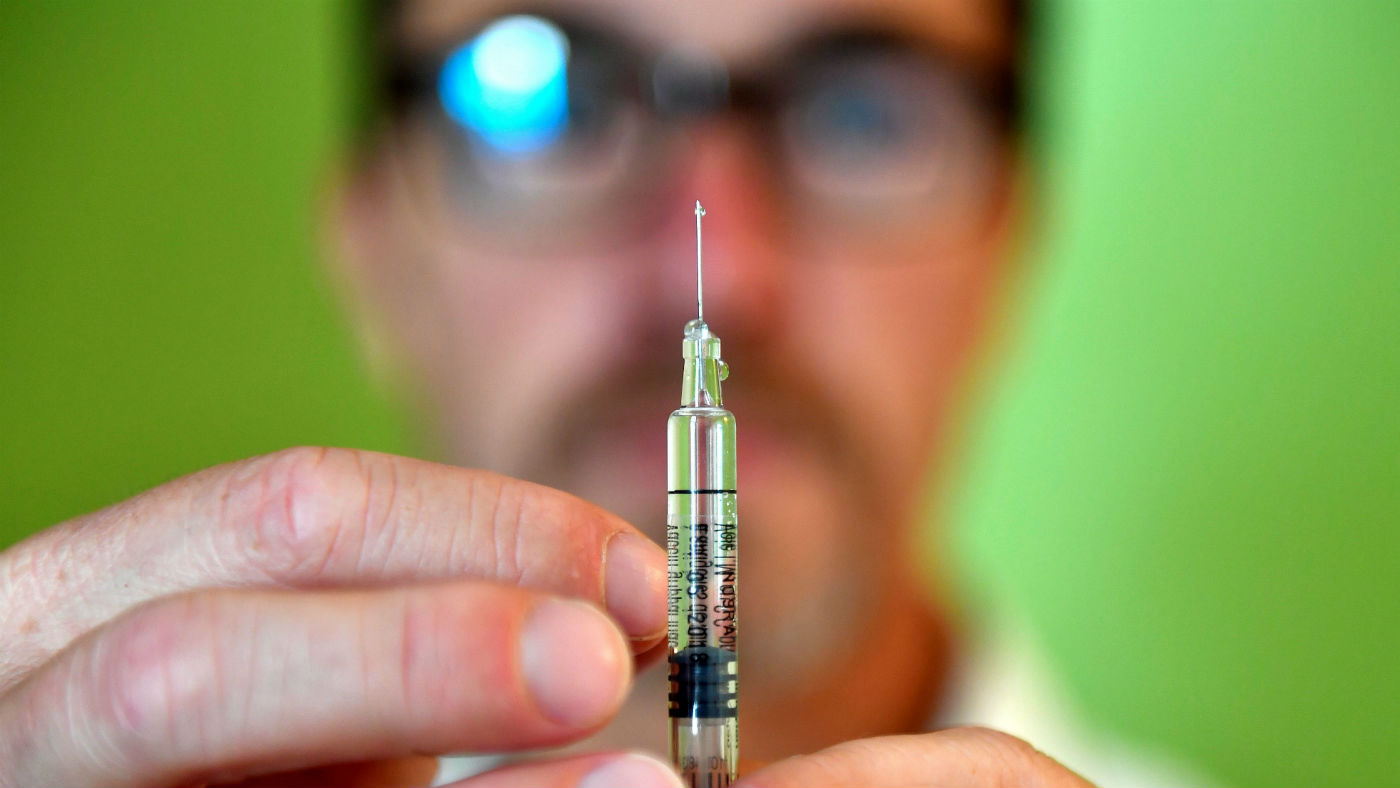Pros and cons of the flu jab
Doctors say asthmatics who shun the vaccination are playing ‘Russian roulette’ with their lives

A free daily email with the biggest news stories of the day – and the best features from TheWeek.com
You are now subscribed
Your newsletter sign-up was successful
Medical experts are urging the 5.4 million asthma sufferers in the UK to get the flu jab as soon as possible this winter, in a bid to avoid needless deaths.
Most asthmatics are entitled to a flu jab free on the NHS, because the condition puts them at higher risk of experiencing severe complications as a result of the influenza virus. But “a poll has found that almost one in four people with asthma do not plan to have the jab ahead of the cold spell”, says The Guardian.
“People with asthma who are shunning the flu jab could be playing Russian roulette with their life,” said Dr Andy Whittamore, Asthma UK’s clinical lead and a practising GP. “The majority of people with asthma say colds and flu are their top trigger, so it makes sense for them to try and protect themselves by getting the flu jab.”
The Week
Escape your echo chamber. Get the facts behind the news, plus analysis from multiple perspectives.

Sign up for The Week's Free Newsletters
From our morning news briefing to a weekly Good News Newsletter, get the best of The Week delivered directly to your inbox.
From our morning news briefing to a weekly Good News Newsletter, get the best of The Week delivered directly to your inbox.
The flu vaccination is available every year on the NHS, which advises people to ask their GP if they are eligible to get it for free.
Over time, “protection from the injected flu vaccine gradually decreases and flu strains often change”, says the NHS website. “So new flu vaccines are produced each year, which is why people advised to have the flu vaccine need it every year too.”
Last week NHS England announced that health workers who refuse to take up the offer of a free flu jab will be asked to explain why they do not want to be vaccinated.
So what are the pros and cons of the flu jab?
A free daily email with the biggest news stories of the day – and the best features from TheWeek.com
Pros
People who get the vaccination will have a higher likelihood of avoiding the flu over the winter months, according to the NHS. And if you do get flu despite having the jab, it’s likely to be milder and shorter-lived than it would otherwise have been.
Last year saw the worst flu season in a decade, so the latest vaccine contains extra ingredients designed to help older people’s immune systems develop a stronger defence against the virus, says the BBC. Public Health England (PHE) predicts that the jab will lead to 30,000 fewer GP appointments, 2,000 fewer people needing hospital care and 700 fewer deaths from flu.
There is also evidence to suggest that having the flu vaccine can reduce the risk of suffering a stroke.
Cons
Serious side-effects are very rare but people who have the vaccine may have a mild fever and aching muscles for a couple of days afterwards, and their arm may be a bit sore at the injection site.
Some people may have an allergic reaction to the flu shot. If you have a negative reaction to the vaccine, symptoms usually occur within minutes to hours of receiving the vaccine. People who have an egg allergy may be at increased risk of reaction to the injectable flu vaccine, because some flu vaccines are made using eggs. Egg-free vaccines are now available from the NHS.
It’s extremely rare, but influenza virus vaccination may also trigger Guillain-Barre syndrome, a condition where the immune system begins to attack the nervous system.
-
 How the FCC’s ‘equal time’ rule works
How the FCC’s ‘equal time’ rule worksIn the Spotlight The law is at the heart of the Colbert-CBS conflict
-
 What is the endgame in the DHS shutdown?
What is the endgame in the DHS shutdown?Today’s Big Question Democrats want to rein in ICE’s immigration crackdown
-
 ‘Poor time management isn’t just an inconvenience’
‘Poor time management isn’t just an inconvenience’Instant Opinion Opinion, comment and editorials of the day
-
 A real head scratcher: how scabies returned to the UK
A real head scratcher: how scabies returned to the UKThe Explainer The ‘Victorian-era’ condition is on the rise in the UK, and experts aren’t sure why
-
 Trump HHS slashes advised child vaccinations
Trump HHS slashes advised child vaccinationsSpeed Read In a widely condemned move, the CDC will now recommend that children get vaccinated against 11 communicable diseases, not 17
-
 A fentanyl vaccine may be on the horizon
A fentanyl vaccine may be on the horizonUnder the radar Taking a serious jab at the opioid epidemic
-
 Health: Will Kennedy dismantle U.S. immunization policy?
Health: Will Kennedy dismantle U.S. immunization policy?Feature ‘America’s vaccine playbook is being rewritten by people who don’t believe in them’
-
 How dangerous is the ‘K’ strain super-flu?
How dangerous is the ‘K’ strain super-flu?The Explainer Surge in cases of new variant H3N2 flu in UK and around the world
-
 Vaccine critic quietly named CDC’s No. 2 official
Vaccine critic quietly named CDC’s No. 2 officialSpeed Read Dr. Ralph Abraham joins another prominent vaccine critic, HHS Secretary Robert F. Kennedy Jr.
-
 This flu season could be worse than usual
This flu season could be worse than usualIn the spotlight A new subvariant is infecting several countries
-
 The ‘menopause gold rush’
The ‘menopause gold rush’Under the Radar Women vulnerable to misinformation and marketing of ‘unregulated’ products